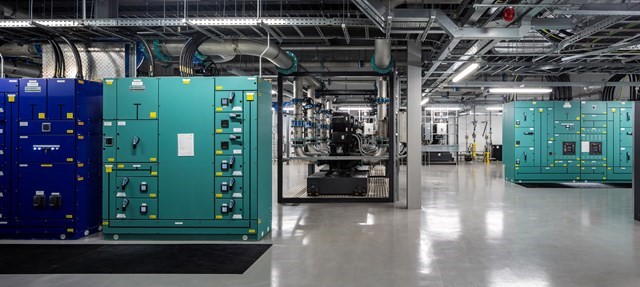The world’s insatiable demand for computing power results in much wasted energy, but storing and repurposing that heat is ecologically beneficial.
A first-of-its-kind system in the UK is being trialed in Edinburgh to see if waste heat from a large computing facility can be stored in disused mine workings and used to warm homes.
The large amounts of energy needed to power the University of Edinburgh’s Advanced Computing Facility (ACF) could be recycled to heat at least 5,000 households in Scotland’s capital.
The facility currently releases up to 70GWh of heat per year. This is projected to rise to 272GWh once the UK Government’s recently announced next-generation exascale supercomputer is installed at the University.
How the heat is reused
The process of cooling the supercomputers would be augmented to transfer the captured heat into the disused mine’s water — up to a maximum temperature of 40°C — which would then be transported by natural ground water flow in the mine workings, and made available to warm people’s homes via heat pump technology.
If successful, the study could provide a global blueprint for converting abandoned flooded coal, shale and mineral mine networks into underground heat storage.
With a quarter of UK homes sitting above former mines, potentially seven million households could have their heating needs met this way, researchers noted.
The project’s lead academic, Professor Christopher McDermott, School of Geosciences, University of Edinburgh, said: “With more than 800,000 households in Scotland in fuel poverty, bringing energy costs down in a sustainable way is critical, and using waste heat could be a game-changer.”

Professor Sir Peter Mathieson, Principal and Vice-Chancellor, University of Edinburgh, said: “The University’s own climate and sustainability targets mean that we need to look at a wide range of ways to address the challenges of the climate crisis. This project brings together these commitments alongside our own innovative research to find solutions to tackle climate change that deliver direct benefits to people and influence positive change locally and globally.”
